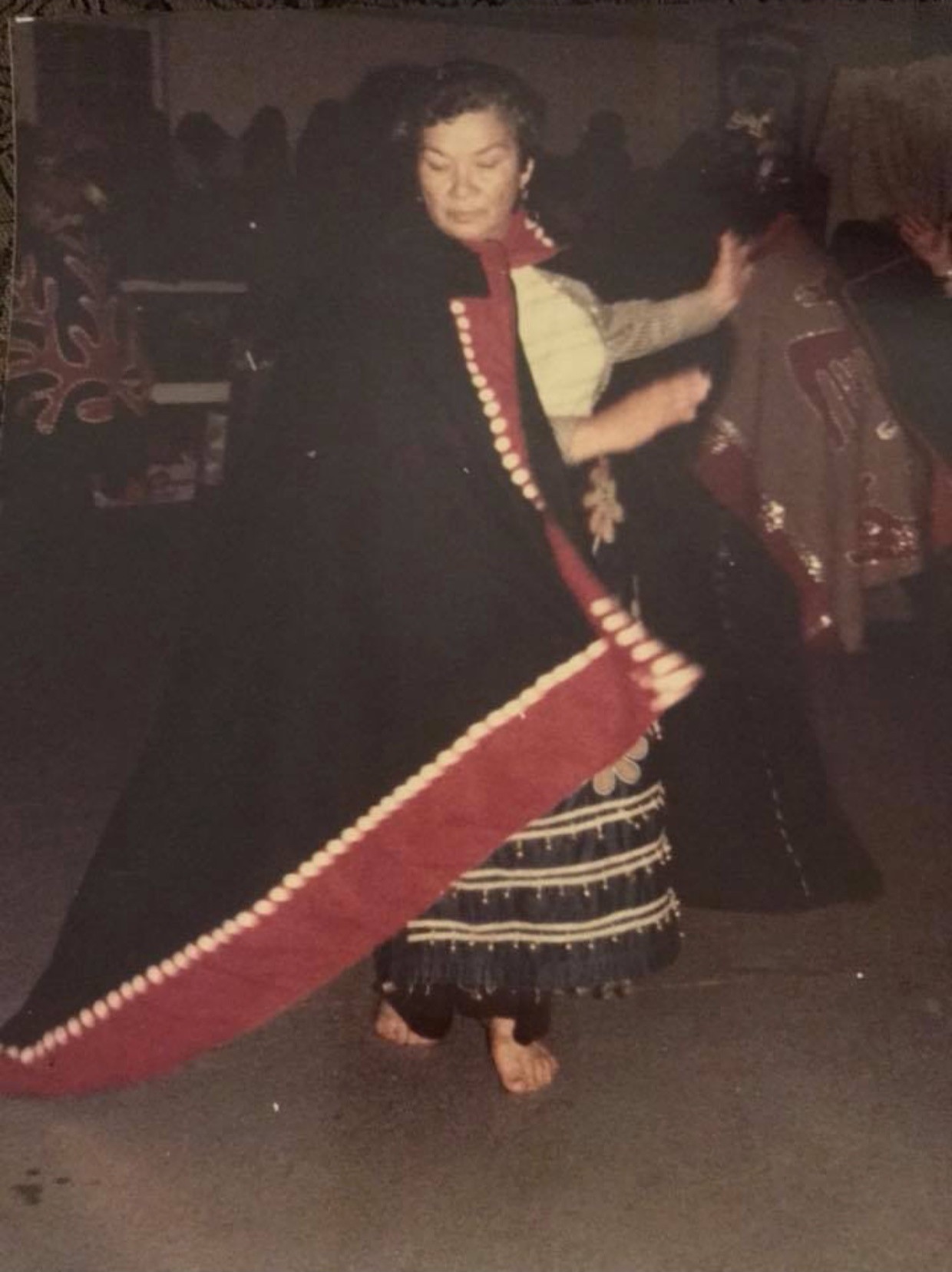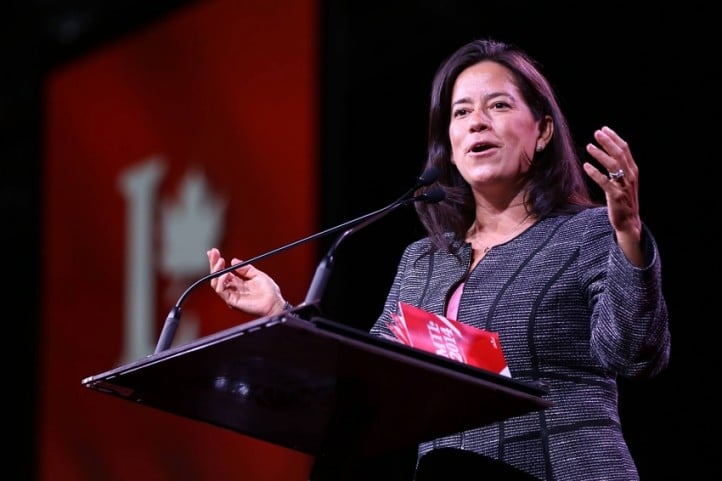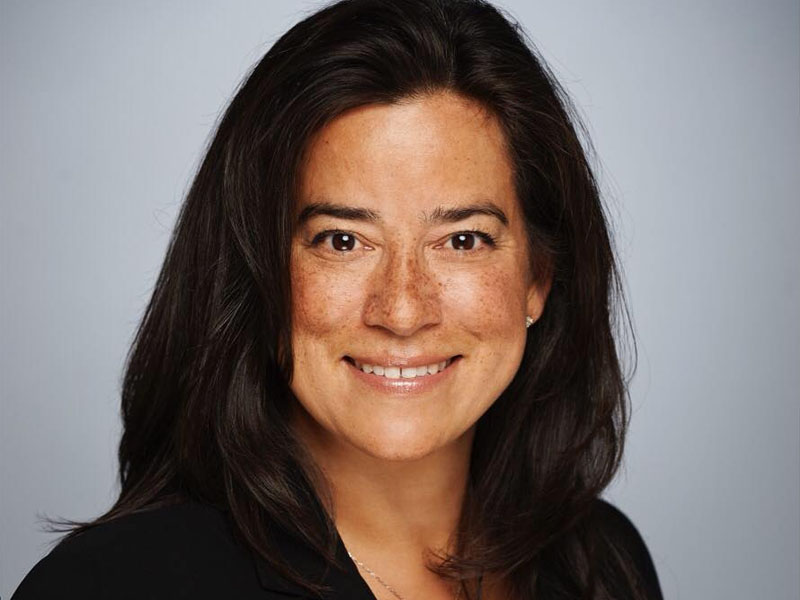She was called a rookie MP when she was appointed justice minister and attorney general of Canada in 2015. Yes, it was her first time as a Member of Parliament, but Jody Wilson-Raybould was no rookie to political leadership or the law.
“She is a uniter in a world that is incredibly fractured. First Nations politics is incredibly fractured, and Jody is one of the only people who has been able to get unanimous support on work that the Assemblies of First Nations has undertaken. So she’s pretty fucking awesome in her ability to get certain things done,” The Tyee was told by a former colleague who asked not to be identified.
This refrain is echoed by people who’ve worked with her throughout her career as a Crown prosecutor, BC Treaty Commissioner, Regional Chief of the BC Assembly of First Nations, and as a politician. People who know her weren’t surprised when she reached, so far, the highest office by an Indigenous Canadian.
In light of the bombshell of activity in the Liberal caucus over the last few weeks, the former colleague said, “The Liberals knew that they were getting a person who worked in certain ways, who would help them in many ways — and she did.
“Forget about the bills she worked on and all of that, she’s enormously benefitted the prime minister in creating credibility around his reconciliation narrative and First Nations relations. He’s piggybacked on her relationships across the country.”
Wilson-Raybould has been building those relationships most of her life, well before she was in any form of official leadership. Her father, well known Indigenous leader Bill Wilson is credited for making significant gains for Indigenous peoples in B.C. while being an outspoken public figure.
“He instilled in me, as did my grandmother, the values that I carry to this day in terms of knowing who I am and understanding my culture and the laws of our Big House, which is our system of government, and ensuring that I never forget where I come from,” Wilson-Raybould told Canadian Lawyer.
“For me those teachings have enabled… me to harness the opportunities to ensure that not only do I do my part to create the space for Indigenous people and others generally to improve their quality of life [but] to recognize that everybody plays a role in the community.”
‘Born to noble people’
At six years old, her grandmother, the matriarch Puugladee, gave her a traditional name in a sacred potlach ceremony: Puglass, which means “a woman born to noble people.”
Throughout her childhood, she was often in council meetings with her father when she’d rather have been out playing with her friends. But she learned the issues, the processes, the way governance worked — or didn’t. By the time she entered elected life, she was already ahead.
“She knew all the chiefs and leadership and knew a lot of the issues,” Robert Phillips recalled to Maclean’s. Phillips overlapped with her at the treaty commission. “I saw her right away as a born leader, sort of a take-charge kind of person.”
Wilson-Raybould was called to the bar in 2000 at age 29. She quickly began working as a Crown prosecutor in Vancouver’s Downtown Eastside, Canada’s poorest neighbourhood.

Colleagues there knew her as someone who treated defendants with compassion. “She has actually talked to the people who are affected. She has worked with these people and made choices about their future in a really meaningful way,” defence lawyer Terry La Liberté told Canadian Lawyer.
David Eby, an NDP MLA who would become B.C.’s attorney general, and who had practiced law defending people on society’s margins, was glad for an attorney general with Wilson-Raybould’s grounding.
“Too often the lawyers who become attorneys general, they’re not down in the trenches of the criminal justice system, they’re coming from civil litigation background in bigger firms working in business law,” he told Maclean’s.
“Her values and principles underline her personality, and those values and principles are important ones of respect, equality, integrity,” Amyn Lalji told The Tyee. Now a lawyer focusing on Indigenous-related law, he articled with Wilson-Raybould before she became a Crown prosecutor.
“Any decision she would make, in my view, would be informed by those principles, not only as part of her legal education but also as part of her upbringing as a leader in her community and an Indigenous person,” Lalji said.
‘She was engaging. She was smart. She listened.’
After nearly four years working at the 222 Main St. court house, the BC Treaty Commission recruited her to work as a process advisor. Within months she ran for and was elected commissioner — her first time in elected office.
Wilson-Raybould worked at the commission for seven years, earning a reputation for bringing opposing sides together. Modern treaties are controversial. Some First Nations are eager to get new deals on paper, while others argue the treaties will inevitably fall short of inherent rights. On top of ideological differences, each Indigenous community has unique characteristics and history, making each treaty negotiation its own complicated process.
Her determination to engage with such differences made an impression on a young colleague, Ginger Gosnell-Myers, a youth representative on commission roundtables that Wilson-Raybould organized.
“She was engaging. She was smart. She listened. She worked to include voices that weren’t normally included, and she was warm,” Gosnell-Myers recalls. “To work with Jody as a young person felt like I was being heard for the first time in a process that was normally exclusionary. She went out of her way to make sure that this diversity was reflected.”
Don Rusnak, now an Ontario Liberal MP, was a new lawyer working at the commission with Wilson-Raybould. She had “excellent relationships with the federal negotiators, the provincial British Columbia negotiators, and First Nations negotiators,” Rusnak told Canadian Lawyer. “She brought people together when I was there and taught me that that was extremely important — relationships and bringing people together.”
“She’s so dependable, reliable, on the ball all the time,” Sophie Pierre, who headed the commission at time, told The Tyee. “I have complete faith in her. Total and complete.”
In 2009, Wilson-Raybould ran for and was elected both as councillor for her own We Wai Kai Nation, and as the BC Regional Chief for the Assemblies of First Nations, a role she was re-elected for three years later in a landslide win.
Grand Chief Stewart Phillip, head of the B.C. Union of Indian Chiefs, has known Wilson-Raybould for 10 years since they ran against each other to be BC Regional Chief.
“It may surprise you that I was so impressed with her platform that I began to coach her. Being a lawyer and former crown counsel, she had a habit of speaking very, very quickly. So I told her, ‘It’s important people hear what you have to say. You should consider slowing down in your delivery.’ So she took my advice, and needless to say she won,” Phillip told The Tyee.
Phillip, too, described Wilson-Raybould as a uniter, based on their work together on the BC First Nations Leadership Council, which is made up of representatives from the BC AFN, UBCIC, and First Nations Summit.
“You’re talking about three different political organizations with different mandates, differently ideologies, and it was a challenge to work together. We came together under the auspices of a leadership accord, which basically said that we will respect and honour each other’s respective unique mandates, we will work together on issues of mutual and common concern, and thirdly in the event that there arise irreconcilable differences, we’ll go our separate ways,” Phillip says.
This March the Leadership Council will celebrate 14 years, a major accomplishment, he says. “The other regions across this country are fractured: their organizations are engaged in a lot of infighting. So quite frankly B.C. rocks in that regard, and Jody was the steady hand at the tiller, so to speak.”
‘Our solutions weren’t listened to’
Phillip supported Wilson-Raybould’s decision to enter federal politics saying, “She was completely and totally committed to creating better opportunities for our people in all dimensions of our lives, and really believed that reconciliation was possible between ourselves and other levels of government and the citizenry of this country.”
As regional chief, Wilson-Raybould championed ideas around self-governance, something she argued was critical to the work of reconciliation. Self-governance means moving out from under the Indian Act, she’s said, and having First Nations reassert their leadership and authority over issues that matter in the nations.
Her assertions were not theoretical, but specific and concrete. With her husband Tim Raybould, whom she married in 2009, and the BC Assembly of First Nations, she co-authored a toolkit for self-governance that runs over 800 pages of detailed, methodically researched guidelines for Indigenous governance.
But the solutions they’d scrupulously developed were brushed off by then prime minister Stephen Harper in a 2014 meeting shortly after she was re-elected as BC Regional Chief.

“My perspective in sitting there, in what I heard, was that our solutions weren’t being listened to,” Wilson-Raybould later said in an interview with the Calgary Herald. Instead of shutting her down, the Harper brush-off impelled her toward federal politics where she’d have a position to make sure the ideas got the attention they deserved.
She captured the attention of one Liberal with a hefty resume. Former prime minister Paul Martin heard her speak on the guidelines, and was so impressed he offered mentorship and floated her name in top Liberal circles.
She kept advancing similar solutions as a politician and justice minister. In 2017, the Justice Office released 10 principles for the Crown’s relationship with Indigenous peoples, meant as a starting point to acknowledge the UN Declaration on the Rights of Indigenous Peoples — which Canada only recently agreed to adopt, having been a permanent objector since the Declaration was passed in 2007.
The first principle states that interactions between Crown and Indigenous peoples must recognize the “right to self-determination, including the inherent right of self-government.” As Maclean’s noted, “for those who knew about the toolkit, the detailed, systematic approach behind the 10 principles was more than familiar.” Wilson-Raybould’s fingerprints were all over it.
It was Justin Trudeau who invited Wilson-Raybould to run for Liberal MP. On the campaign trail she told The Tyee: “I think the Canada we know and we love is being transformed into something we don’t recognize.” The country is built on diversity, she said, but “I feel that’s under threat and we all need to collectively do something about that.”
After she won her seat in the Vancouver-Granville riding, Trudeau named her to his cabinet as justice minister and attorney general. As the first Indigenous person or woman to hold the office, she shepherded groundbreaking legislation on medically assisted dying, discrimination based on gender expression, and legalization of marijuana.
On Jan. 14 she was given a new portfolio, Veterans Affairs, widely seen as a cabinet demotion.
Last week news reports alleged Trudeau had wanted Wilson-Raybould, when justice minister, to help stop criminal prosecution of Quebec-based construction firm SNC-Lavalin. Trudeau has denied undue pressure was applied.
On Feb. 11 Trudeau said he had “full confidence” in Wilson-Raybould, and that her continued presence in his cabinet proved she was fine with how matters stood. In fact, he said, the two agreed about “a conversation we had in the fall, when I told her directly that any decisions on matters involving the director of public prosecutions were hers and hers alone.”
A day later Wilson-Raybould resigned from cabinet.
Afterwards, Trudeau hit hard. “The government of Canada did its job and to the clear public standards expected of it. If anyone felt differently, they had an obligation to raise that with me. No one, including Jody, did that.”
Back in January, when Wilson-Raybould was out the door as justice minister, she posted a little-noted statement many are now studying for signs of the storm to come:
“The role of the Attorney General of Canada,” she wrote, must “be free from even the perception of political interference and uphold the highest levels of public confidence. As such, it has always been my view that the Attorney General of Canada must be non-partisan, more transparent in the principles that are the basis of decisions, and, in this respect, always willing to speak truth to power. This is how I served throughout my tenure in that role.”
Wilson-Raybould has retained the counsel of a former a Canada Supreme Court justice to advise her on what she can say about the SNC-Lavalin controversy. So far she is quiet, citing solicitor-client privilege from when she was justice minister. Trudeau could waive that pledge, some experts say.
In any case, it seems fair to assume she’ll not long stay out of the fray.
“I remember one time in Victoria there was an abandoned house and there was a bees’ nest. As soon as I saw it, I ran away. But she went to investigate and see if there were actually bees in there,” big sister Kory Wilson told Canadian Lawyer.
“I was quite a distance away when, of course, all of the bees came out of the nest and they were stinging her and she was running towards me.”
That’s the Jody others have seen take action as an adult, the sister Kory knew growing up who was not the kind to play it safe if her instincts said otherwise.
“She has had stitches. I have never had any stitches. So she has always just gone for it.”
With files from Andrew MacLeod. ![]()
Read more: Indigenous, Federal Politics


















Tyee Commenting Guidelines
Comments that violate guidelines risk being deleted, and violations may result in a temporary or permanent user ban. Maintain the spirit of good conversation to stay in the discussion.
*Please note The Tyee is not a forum for spreading misinformation about COVID-19, denying its existence or minimizing its risk to public health.
Do:
Do not: